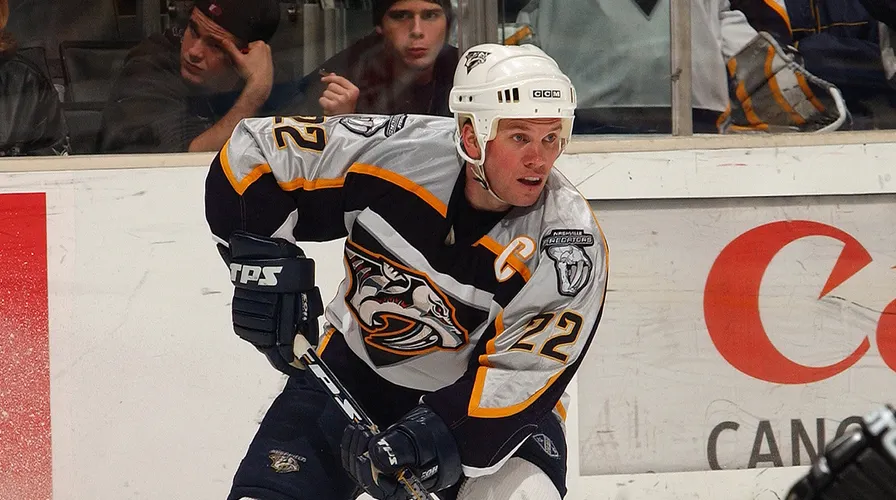Hockey Star Greg Johnson Battled Brain Trauma After NHL Career.
Greg Johnson CTE
Tragedy struck the hockey world this week with the news that former player Greg Johnson suffered from chronic traumatic encephalopathy (CTE) at the time of his death by suicide five years ago. Johnson’s family, along with the Concussion Legacy Foundation, released a statement detailing his diagnosis and calling for greater awareness of the dangers of head injuries in sports.
The news comes with heavy criticism from the National Hockey League (NHL) for its stance on CTE. Johnson’s daughter, Carson, expressed her frustration at the league’s refusal to acknowledge the link between repeated head trauma and the degenerative brain disease. She emphasized the importance of informing athletes about the risks and urged the NHL to take a more proactive role in player safety.
NHL CTE Diagnosis
Johnson, a well-respected two-way forward, carved out a successful 14-year career playing for the Nashville Predators, Chicago Blackhawks, Pittsburgh Penguins, and Detroit Red Wings. He was also a member of the Canadian Olympic team that captured a silver medal in Lillehammer in 1994.
The heartbreaking revelation about Johnson’s condition adds to the growing body of evidence linking head trauma in sports to CTE. Dr. Ann McKee, director of the Boston University CTE Center, confirmed Johnson’s diagnosis but cautioned that the severity could not be definitively determined due to the circumstances of his death.
CTE in hockey players
This latest case adds to a concerning trend. The brains of 17 out of 18 former NHL players studied have now been diagnosed with CTE, including legendary figures like Ralph Backstrom and Bob Probert. While the NFL has acknowledged the link between head trauma and neurological disorders, the NHL continues to lag, despite mounting evidence.
NHL player safety
Dr. McKee acknowledges a potential bias in the data, as families with players exhibiting CTE symptoms may be more likely to donate their brains for research. However, the sheer number of diagnosed cases paints a worrying picture.
The hope is that Johnson’s story will serve as a wake-up call for the NHL. Ignoring the science puts players at risk and denies families crucial answers. It’s time for the league to step up and prioritize the well-being of its athletes.
Also Read:
- Messi Scores First Copa America Goal, Leads Argentina to Final
- Blue Jays Lose Heartbreaker Despite Dominant Kikuchi Performance
- 2024 Stanley Cup Contenders: NHL Preseason Power Rankings
- Capitals Restructure Front Office: Patrick Named GM, MacLellan Remains President
- Canada’s Ice Warriors Gear Up for 4 Nations Face-Off!
- Sharks Land Top Pick Celebrini: A Future Star in the Making?



